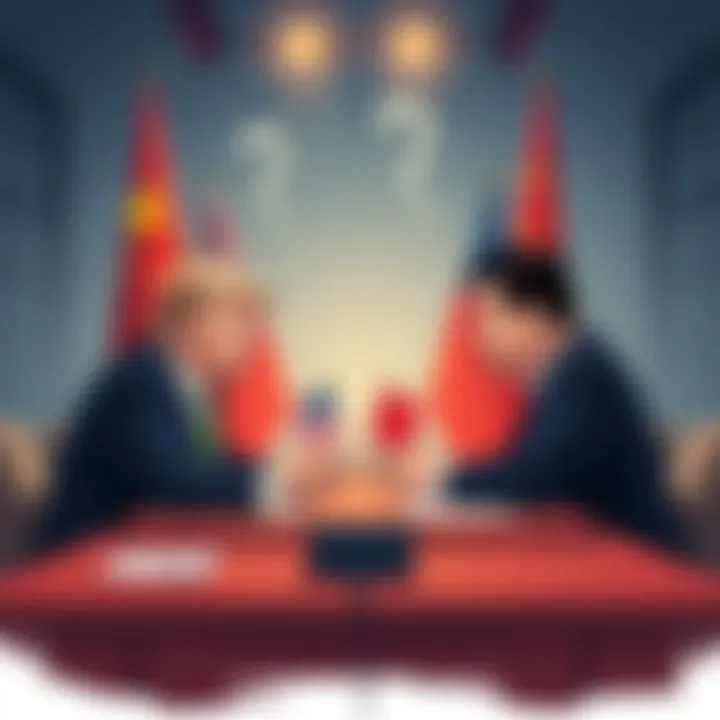Trump | Meeting with Xi Jinping in Question | Controversy Grows
Edited By
Jordan Smith

President Donald Trump expressed doubts about his upcoming meeting with Chinese President Xi Jinping, suggesting it "might not happen" due to potential complications. This remark came during a recent White House lunch with Republican lawmakers, raising eyebrows and igniting plenty of discussion online.
Market Reaction and User Sentiment
Comments on various forums reveal a mixed sentiment regarding Trump's stance on China. Many contributors were quick to criticize the administration's approach, particularly highlighting a sense of frustration.
One forum user remarked, "Xi/China holds all the cards. Trump really screwed the US by trying to pressure China."
Another noted the market's volatility, stating, "It's frustrating when headlines derail a good run. Short-term noise can shake things up fast."
Critics also pointed out missteps in Trump's dealings, with some suggesting more strategic collaboration with allies could have been beneficial:
"He could have pressured China with a strategic plan Now everyone is pissed at him."
Political and Economic Implications
As the uncertainty surrounding U.S.-China relations grows, some observers question whether Trump's tactics will pay off. The lack of clarity from the White House could impact not only trade negotiations but also market stability. One quoted comment captures this sentiment well: "Make BTC great again!" referencing how crypto markets could react to political news.
"Some argue that the President’s bipolar tweets could hurt his standing further."
Key Takeaways
❗ Trump's comments suggest a wavering commitment to the meeting, heightening market uncertainty.
🚨 There is a palpable discontent among commentators, with many believing the President's handling of China is flawed.
💬 "Is anyone actually surprised by Trump pulling stupid moves at this point?"
As the situation unfolds, many are left wondering what the future holds for U.S.-China relations and how this could influence broader economic outcomes.
The Bigger Picture
In the rapidly changing landscape of geopolitics, Trump's remarks could set the stage for more contentious dealings, making the upcoming weeks crucial. Stay tuned as developments emerge.
Future Market Shifts Ahead
As uncertainties mount over the meeting between Trump and Xi, there's a strong chance that volatility in the markets will continue. Speculation suggests that failure to solidify discussions could lead to further trade tensions, with analysts estimating a 60% probability of escalated tariffs or restrictions on Chinese imports if negotiations falter. This could directly affect market performance, especially in tech sectors heavily reliant on Chinese manufacturing. Furthermore, the crypto market, often reactive to political tensions, might experience renewed interest, particularly if investors seek alternatives amidst economic instability.
Historical Echoes in Trade Unrest
Looking back, the tensions between the U.S. and China today can draw parallels to the Smoot-Hawley Tariff Act of 1930, which aimed to protect American industries but ultimately led to retaliatory tariffs and worsened the Great Depression. This moment in history highlights how attempts to assert economic dominance may backfire, leading to prolonged strife instead of resolution. Much like how the protective tariffs in the past complicated international relations, Trump's current strategy might risk inflating tensions further, potentially spiraling into widespread economic disruptions.
